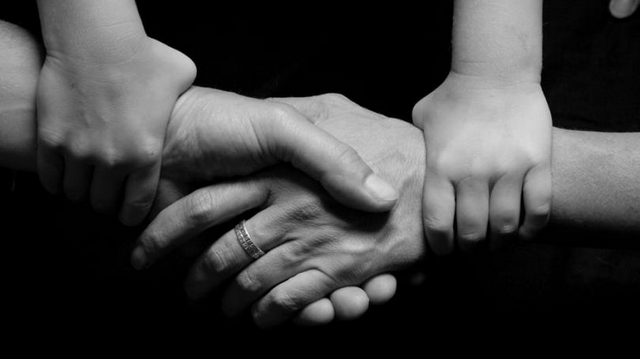
By Andre van Heerden, Director at The Power of Integrity Ltd
Names like Nanking, Auschwitz, Gulag, Sharpeville, Belfast, My Lai, Cambodia, Rwanda, Darfur, and the Twin Towers, remind us that cruelty is a human phenomenon from which no society is immune.
Cruelty disfigures communities. A slighted teenager drives her car into a crowd of revellers; a teenage sports star kicks his ex-girlfriend in the stomach to terminate her pregnancy; a lecturer murders his girlfriend, stabbing her two hundred and sixteen times, then pleading he was “provoked”.
Moreover, the public appetite for sado-masochism, as demonstrated by gratuitous violence in the media, calls into question the psychological state of our entire civilisation.
Yet violence is not the only disturbing element. The popularity of irrational ideas in cults and ideologies, social and environmental degradation, and gullibility in the face of dishonest advertising and politics all tarnish the image of humanity.
But why are we shocked? Because we expect better of ourselves as human beings. We judge our actions by certain standards and feel the tug of conscience in our lives. G. K. Chesterton noted that one thing we all agree on is that human beings are not what they were meant to be.
This raises the question of what we mean when we talk about human nature, because it must obviously include the capacity to go against our animal urges.
The implications for leadership are obvious. If leadership is about people, then leading like you mean it logically requires a leader to be very knowledgeable about people, a dedicated student of human nature — something of an amateur, but well-informed, psychologist.
Psychology is unique among sciences in that it involves the knower trying to know himself. It is the one science where we start with valuable inside knowledge, albeit often deceptive and easily misinterpreted. Yet this produces a paradox — the one creature equipped to know things far transcending its terrestrial home, struggles to answer the riddle of its existence. And we have been trying since the dawn of civilisation.
The blind alleys of modern philosophy over 500 years are well documented, but it must be noted that the rejection of Aristotelian formal and final causation diverted key figures like Locke and Kant into the embarrassing position of affirming human rights while denying that there is such a thing as human nature. From Descartes to Deconstruction, modern philosophy has fuelled the rampant nihilism and narcissism of the post-modern West, trying to understand the isolated self apart from human nature.
Wiser heads like Alexis de Tocqueville, staying with Plato, Aristotle, and Judeo-Christian tradition, explained that what made human beings different was that they worked to improve themselves through life. Animals are locked into the here and now of immediate necessity. Human beings, by contrast, live lives that transcend the present, reaching back into history and forward into the future. We are incapable of being satisfied with the way things are, and constantly change things to make them better.
What are the qualities of human nature? First, we possess self-consciousness, a sense of personal identity, the mysterious “I” confronting the world as “other”. We also have intellect over and above the raw intelligence of sense perception, memory, and imagination. Intellect is the faculty of creative, conceptual, abstract knowing that makes us truth-seeking beings; it informs our free will, the faculty through which we choose what to do and what not to do. Free will empowers us to change not only physical reality but also our selves.
Our relationships also distinguish human beings from the animal world. As rational creatures, we must build relationships on truth, without which trust is impossible and relationships become dysfunctional.
How does personhood fit into all of this? Personhood is a philosophical concept, while the idea of a human being is the scientific counterpart. Science has a great deal more it can discover about human nature, but we have to rely on our metaphysical resources to decide what it means to be a person.
The idea of personhood comes from the Greek and Latin words that signified the mask worn by an actor, suggesting a unique individual called to play a particular role in life. It is related to our affinity for truth and our yearning for the good, and recognises the peculiar form of purpose known only to human beings. Our purpose goes beyond immediate needs; it is transcendental, calling us to be what we are not at the present moment.
Hans Jonas saw responsibility — respecting the rights of others — as the core concept in ethics. Human freedom, essential to personal identity, can only grow in proportion to responsible behaviour. We are dependent on and responsible for other people.
The implications for leadership are plain. If leadership means inspiring and enabling growth in others for the good of the community, then self-leadership is the first requirement. That means that education, a process only persons can undertake, is a responsibility and not a privilege.
If human nature is a myth, as Sartre suggested, if there is no essential truth about human beings, then concepts like equality, justice, and freedom lose all meaning. In this sense, it is the truth that sets us free. Wherever falsehood reigns, there is only misleadership — the tyranny, exploitation, manipulation, and human degradation that deface our world.
Leadership must be consistent with personhood and empirically verifiable human nature, always being ready to ask the existential “Why?” and the creative “What if?” Those are the questions that constantly remind us of the awesome responsibilities we bear in this strange and beautiful cosmos.
The above is a précis of Chapter Seven of Leaders and Misleaders by Andre van Heerden. In the next article, Andre will consider ‘Building character‘
